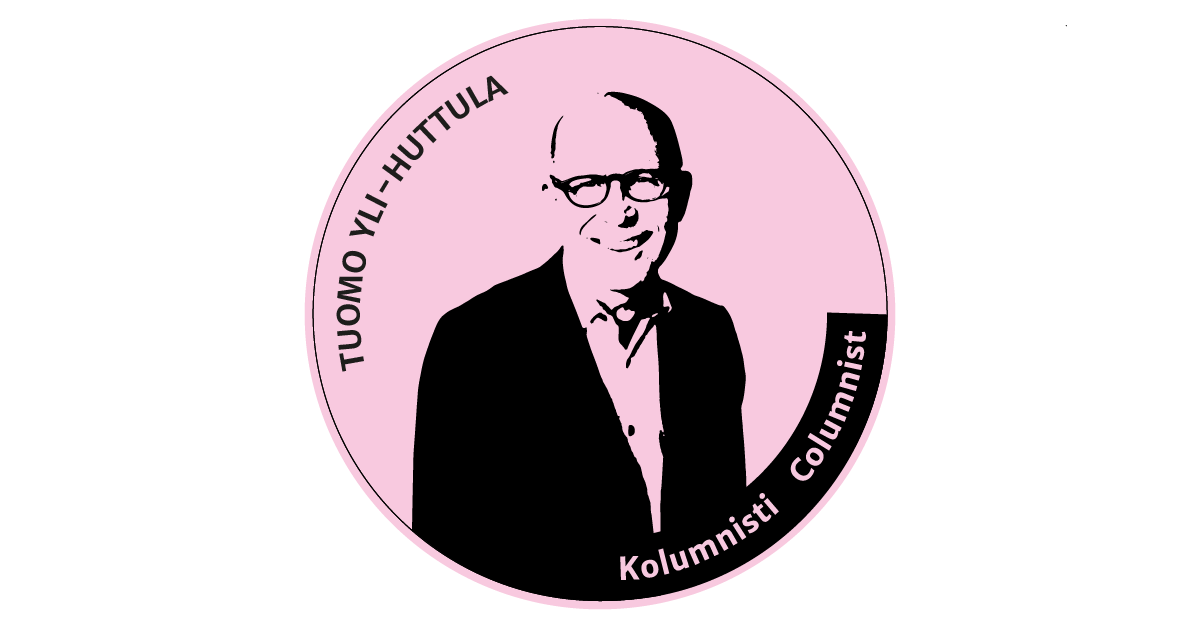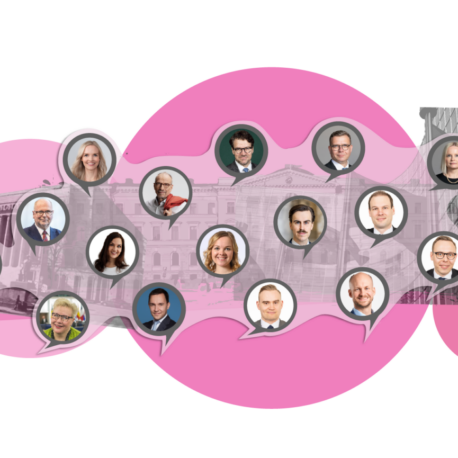
The negotiations to form a new government are currently under way under PM-designate Petteri Orpo’s lead at the House of the Estates, which was completed in 1890 as a venue for meetings for the three common estates: the clergy, the burghers and the peasantry. The chiefly Swedish-speaking nobility used to convene at the House of Nobility instead, which is a detail that has been at the back of my mind as I’ve followed the twists and turns of the difficult negotiations.
I believe that by Midsummer, Finland will have a new government formed by the National Coalition Party, the Finns Party, the Swedish People’s Party of Finland and the Christian Democrats in Finland. For the government work to run smoothly, it is important that the parties iron out the biggest issues during the government negotiations so that they do not keep cropping up during the government’s term of office. At their best, long government formation talks can weld the governing parties together. Perhaps the teething troubles we are seeing now can help the new government find its way to a closer collaboration. As a known optimist, I like to think so.
The House of the Estates is a symbol of power. At the moment, the eyes of experts and interest groups are firmly on the House of the Estates as they are vying for an invitation to be consulted. In addition to experts from different ministries and research institutes, the government negotiators have already consulted with representatives of trade associations, social partners and various non-governmental organisations.
At the early stages of the government formation talks, the media reported that there was no place for lobbyists at the House of the Estates. What they meant was that in government negotiations, the role of lobbyists is to act as experts invited for consultation, not as negotiators or secretaries at the tables. It is good to stay clear on the roles – even lobbyists with a political background have more credibility when they are not wearing two hats.
Legislative changes and initiatives are based on social reforms, and the call on what reforms are necessary is made by politicians. Officials then prepare the legislation while subject to liability for acts in office. None of this is the work of lobbyists. Instead, lobbyists offer their expertise and perspective in the course of the preparation. Lobbyists representing various experts and interest groups are the best experts on how prospective new legislation will affect various sectors and thus also the everyday lives of Finns.
Lobbyists will not sideline politicians. The roles are clear: lobbyists provide reasons, politicians make decisions. But what we need is regular and open dialogue between the two. Finland’s statutory transparency register, to be established in January 2024, will make this dialogue even more transparent.
It is my opinion that to create high-quality legislation that serves the interests of people, the process must be pluralistic, multi-voiced and transparent.
Tuomo Yli-Huttula
Chair of the Advisory Board for the Transparency Register of the National Audit Office of Finland
Chair of the Edunvalvontafoorumi, a network of Finnish lobbyists
Director of Public Affairs at Finance Finland
Finance Finland already annually publishes a report of its lobbying activities, disclosing the names of the political decision-makers it has lobbied in its key priorities. The reports have been published since 2020.
In a series of four columns, Tuomo Yli-Huttula discusses why Finland needs a statutory transparency register and why he has been lobbying for the register for seven years.
Avoimuusrekisteri.fi service launched on 1 January 2024
- The goal is to increase the openness and transparency of lobbying by obligating legal entities and sole proprietors to report all their lobbying activities and professional lobbying consultation targeted at the Parliament or the ministries.
- The scope of application is limited to the Parliament and the ministries, who are the primary targets of lobbying due to their position in the legislative and budgeting processes.
- Low-impact lobbying will be left outside the scope of the register, as will grassroots civic engagement and the activity of private persons.
- Lobbying activity is to be reported at the individual level, disclosing the names of the members of parliament, ministers, state secretaries, special advisers, permanent secretaries, under-secretaries, director generals and rapporteurs. Personal assistants and other staff of parliamentary groups are reported only in terms of their parliamentary group, without disclosing personal identifying information. Contact with other ministry officials is reported only at the level of their department and unit.
- The entities subject to the reporting obligation are required to submit a report twice a year. Each report must be submitted during its respective reporting period: the first period lasting from 1 January to 28 February, and the second lasting from 1 July to 31 August. The reported information must include who was contacted, what topics were discussed and what the primary means of contact were. In addition, an estimate of the financial resources used in lobbying activity must be reported once a year.
- The information submitted to the register is published in the Avoimuusrekisteri.fi service. Retrieving data from the register is free of charge.
- The registration authority in charge is the National Audit Office of Finland (NAOF), which is tasked with instructing the entities subject to the reporting obligation as well as with preparing detailed guidelines for the use of the service.
- The NAOF has set up an advisory board, whose role is to draw up and maintain recommendations for good lobbying and act as an official body of cooperation for the stakeholder groups related to the regulation. The advisory board began its work in May 2023.
Still have questions?
|Contact the columnist
Looking for more?
Other articles on the topic

New recommendations for good lobbying practice promote a responsible lobbying culture in Finland – Finance Finland is committed to the ethical guidelines

Finance Finland is committed to open lobbying – The 2023 transparency report covers lobbying activities in Finland and Brussels

Home is where the EU is – it’s time to roll up our sleeves and solidify our place at the heart of the Union

EU membership is part of Finland’s political and economic identity – and Finland is looking to take a more active role




